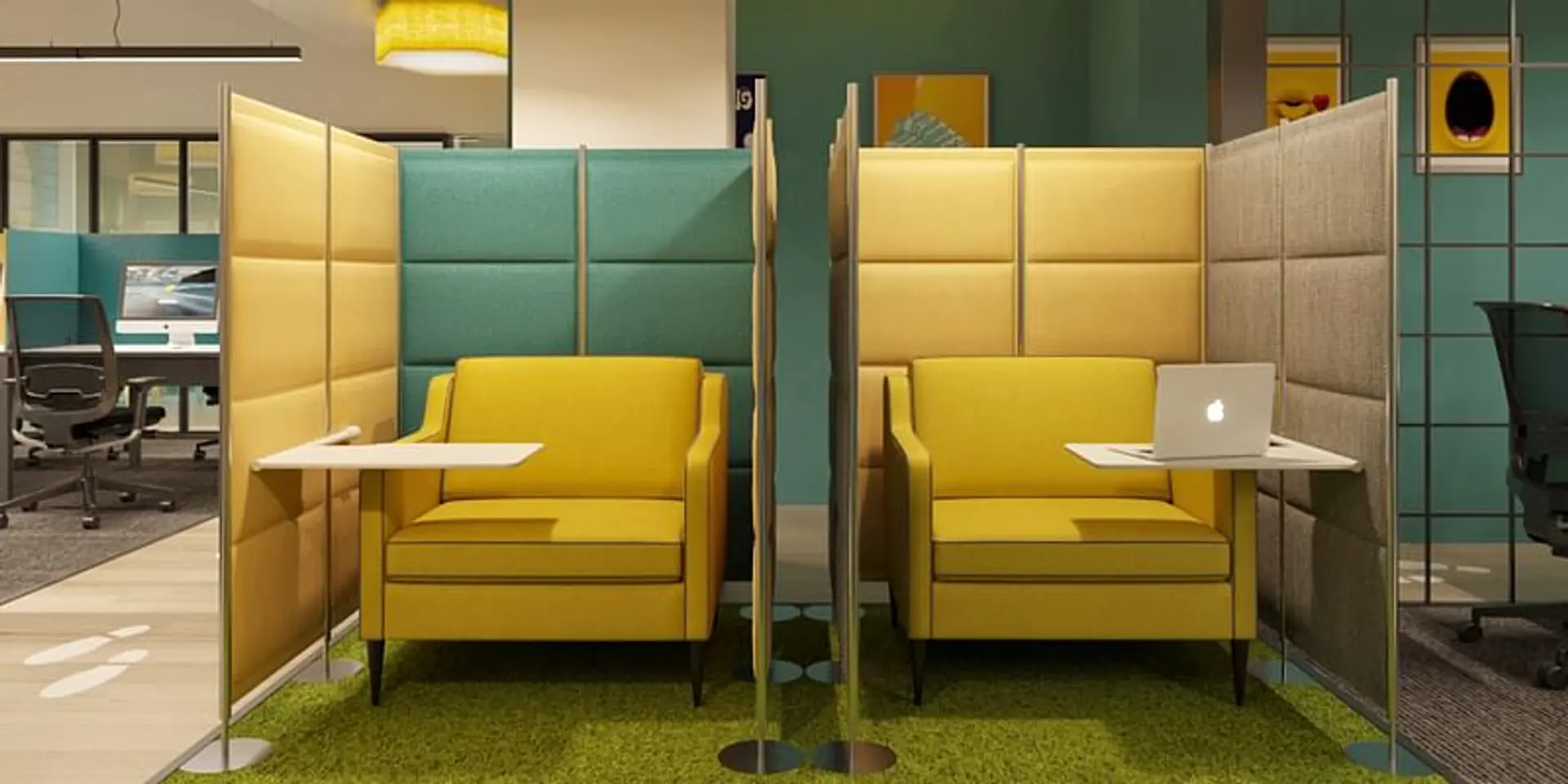Pivot and Persist: Commercial design startup Flipspaces is helping companies like Google reboot office spaces
As India steps into the Unlock 2.0 phase, commercial design startup Flipspaces has launched REBOOTSPACES, a workplace transformational initiative that centres on social distancing, touch-less automation, and home office solutions.
The coronavirus pandemic changed the way we lived – and worked. Most organisations shut down their offices in March, and asked employees to work from home. Now, as the lockdown eases and we prepare to return to work, the big question arises: are our workplaces ready in the aftermath of COVID-19?
A recent survey by Gurugram-based healthtech product FYI, along with marketing research company MindMap Advance Research, revealed that 93 employees were anxious about returning to their offices for fear of their health being compromised. The survey was conducted with 560 employees in Delhi-NCR, Mumbai, and Bengaluru.
To assuage employer and employee fears, commercial interior design startup recently launched REBOOTSPACES, which offers products and services for ‘next-generation’ commercial spaces.
The tech-enabled startup will focus on providing spaces that are intuitive, empathetic, and safe. The integrated solutions take into account hygiene and sanitation, social distancing, touch-less automation, and home office solutions.

Pods designed by Flipspaces
The months that followed the nationwide lockdown saw a southward effect on the revenue of real-estate and office spaces business.
“However, new opportunities have emerged and the workspace transformational initiative - REBOOTSPACES - has become a tangible opportunity in the business environment post COVID-19,” says Founder and CEO Kunal Sharma.
The business and the reboot
Mumbai-based Flipspaces was founded in July 2015 by IIT alumni Kunal and Ankur Mucchal. The company is in the business of interior design, products, and projects for commercial spaces. It serves SMEs, startups, and co-working spaces and its USP lies in using technology suites, powered by virtual learning and gaming engine-based tech.
Since inception, Flipspaces has executed projects to revamp more than three million square feet of commercial spaces for companies such as BSH, Aditya Birla, , InstaOffice, Nivea, Oppo, P&G, Reebok, Royal Enfield, , , , and Games.
Flipspaces has launched two new business lines in the last few months. The first is REBOOTSPACES, which was launched in May-end and focuses on workplace transformation. The second, Design Product Offshoring, was launched in mid-April and is a vertical that delivers design services remotely to clients in the US.
REBOOTSPACES offers a home office solution that addresses the need of working professionals to have a seamless and distraction-free remote working experience. Flipspaces has also adapted its business processes to provide interior design and consulting services remotely and manage projects with minimal physical interaction.
“Having said that, we believe that the demand for commercial spaces and willingness to create differentiated spaces will bounce back in a couple of quarters,” Kunal says. He attributes this to the three Cs that physical spaces provide: culture, connection, and change.

The Flipspaces team
The startup has also launched activities to address sanitisation challenges. These include installing no-touch, automated sanitisation booths at police stations across Mumbai, Delhi, and Bengaluru.
Since the launch of its new products, Flipspaces has been growing its revenue by 3x, month on month, and has served more than 150 clients for REBOOTSPACES, including Google, Incred Financial Services, and Freightwalla.
Its international clients include Quantiphi, CGK, LowKey, Dispensary, and Capeway Tours, among others.
Having established its business in Bengaluru, Delhi and Mumbai, Flipspaces has recently entered the US market and soon plans to expand to Pune, Hyderabad and Ahmedabad.
The commercial design market
According to Business Research and Company, the global market for design services was valued at $153.4 billion in 2018 and was expected to grow to $249.5 billion by 2022, growing at a CAGR of 13 percent. Players like , , , and have been making a mark with their designs in the commercial space.
Demand in the commercial design industry may be muted for a couple of quarters, but Kunal believes the SME ecosystem is focused on generating more savings rather than leveraging credit for survival or expansion.
The co-founder says commercial interior design and build ventures will need to learn and become expert solution providers for new problems.

A workspace designed by Flipspaces
“As workspaces become less dense, a new principle of configurational designs will be at play,” Kunal says. He sees absolute adherence to hygiene, sanitisation, social distancing and touch-less automation as the future of commercial space design.
He adds that with work from home becoming a tangible solution for many organisations, efficient home spaces will become a part of workspace design.
Survival strategy
With a scalable and robust business model, Flipspaces says it does not necessarily need funds to survive.
“We have been able to leverage debt as an instrument to satiate our working capital needs. Our banking partners have extended the support we needed to ensure that there is no dilution of equity,” Kunal reveals. “Today, we can tide over the crisis because our business model is inherently profitable. We would not have survived if our unit metric was negative.”
The Flipspaces team has been working from home. It has set up an internal COVID Committee to resolve queries, support team members facing challenges, and keep them motivated.
“We will be going back to office soon. Delhi and Mumbai will take a longer time than Bengaluru, where we are almost ready. Considering the client sites where projects are initiating, we are working at 30 percent capacity,” Kunal says.
Flipspaces is at present open to investments and in talks to raise funds.
In November 2019, the startup raised Rs 8 crore ($1.15 million) in venture debt funding round from Unitus Capital Inclusive Credit (UCIC) and Alex Group of Companies. Prior to that, Flipspaces raised another $3.5 million from Carpediem Capital in January 2019.
The startup has big plans and aims to “increase its revenue by 5x of pre-COVID-19 metrices, in the next two quarters”.
(With inputs from Tenzin Pema)
YourStory’s Pivot and Persist series spotlights Indian startups that are pivoting to seize new business opportunities, transforming their business models and offerings to navigate the current COVID-19 crisis.
(Edited by Teja Lele Desai)





